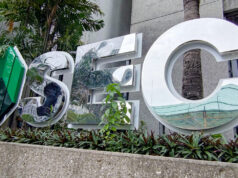Monetary Board approves rules for Islamic banking framework
By Beatrice M. Laforga
THE BANGKO SENTRAL ng Pilipinas (BSP) is set to issue the implementing rules for the country’s Islamic banking law after the Monetary Board (MB) approved two circulars outlining the licensing framework and discussing Shari’ah governance principles, a senior official said.
BSP Deputy Governor Chuchi G. Fonacier said the Monetary Board okayed on Dec. 13 two new circulars on Islamic banking: one on licensing of Islamic banks and setting up of Islamic banking window by existing banks and the other discussing the principles of Shari’ah governance.
“IRR (implementing rules and regulations) on Islamic Bank was approved by MB. BSP is set to issue circular on licensing of Islamic banks and setting up of Islamic banking window by existing banks,” Ms. Fonacier told BusinessWorld in a mobile phone message on Friday.
She said one foreign Islamic bank has expressed interest in putting up a branch in the Philippines, while several domestic banks are also considering setting up their own Islamic banking windows.
Currently, Al Amanah Islamic Bank is the only Islamic bank operating in the country, which is now under the Development Bank of the Philippines when the latter took control of its operations in 2008.
BSP Managing Director of Financial Supervision Subsector III Arifa Ala earlier said several banks have expressed interest on Islamic banking but most were still waiting for the rules.
Republic Act No. 11439 or the act providing for the regulation and organization of Islamic banks signed on Aug. 22, mandates the central bank to act as the sector’s regulatory body and allows it to authorize Islamic banks, both local and foreign, to establish Islamic banking operations in the country.
The law also allows traditional banks to participate in Islamic banking operations upon securing approval from the Monetary Board.
Under Shari’ah principles, Islamic banking is an asset-backed banking business with operations that do not involve “riba” or interest.
Under the law, Islamic banks can accept current accounts, savings accounts, investment accounts and foreign currency deposits, among others.
Islamic banks can also issue Shari’ah-compliant funding instruments such as “sukuk” upon approval by the MB to use on their operations and other capital needs.



